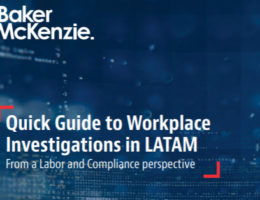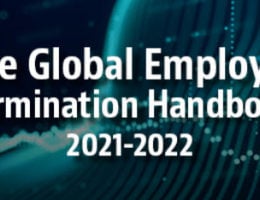Join us for a four-part webinar series as our US moderators welcome colleagues from around the globe to share the latest labor and employment law updates and trends. US-based multinational employers with business operations in Asia Pacific, Europe, the Middle East and Africa, and the Americas regions will hear directly from local practitioners on the major developments they need to know, and come away with practical tips and takeaways to implement.
In
Employment
International: Global Employment Law Fastpass for United States Multinationals (Webinar Series Invitation)
by Susan Eandi, Joseph W. Deng, Elizabeth Ebersole, Benjamin Ho, Michael Michalandos, Jonathan M. Isaacs, Kenneth Chuah, Celeste Ang, Nadège Dallais, Dr. Bernhard Trappehl, Fermín Guardiola, Stephen C.M. Ratcliffe, Ghada El Ehwany, Christiana O'Connell-Schizas, Johan Botes, Joanna Matthews-Taylor, Matías Gabriel Herrero, Leticia Ribeiro C Figueiredo, Andrew Shaw, Maria Cecilia Reyes Jaimes, Liliana Hernandez-Salgado, Emma Glazener and Elif Nur Cakir Vurgun
2 Mins Read








